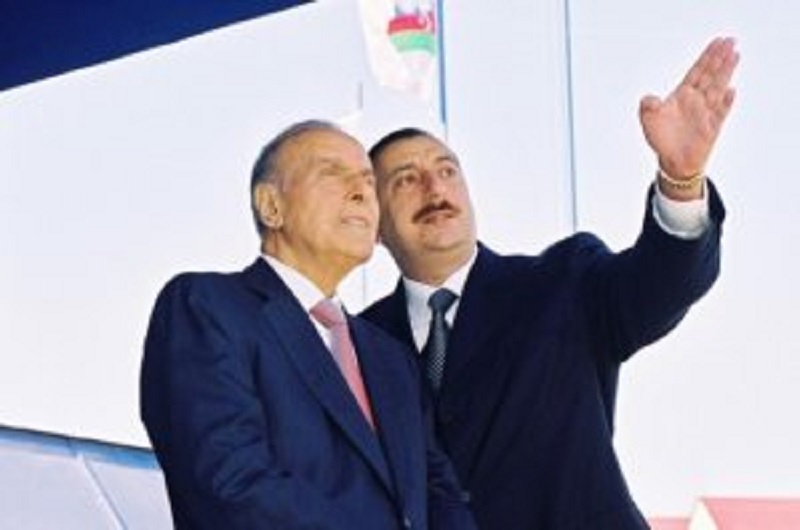By Shazia Anwer Cheema
While watching the beginning of a documentary about “Black Saturday”, I thought that it could be impossible for Azerbaijanis to rise again for demanding Independence after facing so a strong and brutal response from foreign rulers. However, the ending scenes of the documentary were showing children, women, and men celebrating the withdrawal of Soviet forces from Baku–the capital of Azerbaijan.
The Black Saturday or the January Massacre shall always be remembered in the history of genocides when former General Secretary of the Soviet Communist Party Mikhail Gorbachev used the military against the Azerbaijani independence movement to overthrow the Soviet Azerbaijani government.
Official figures indicate that 147 civilians were killed and the number of injured persons was over 800. Azerbaijani had been fighting for true independence for years and they sacrificed their lives more than anybody in the Caucasian region they got independence more than once in past but subjugators snatched it away from them and one of the last battles to my understanding was the “Black January”.

Snatching independence from the former Soviet Union was only possible because the Azerbaijani nation even under the rule of the Soviet Union had a savior, who had been teaching them, that time is not far away when every Azerbaijani would enjoy independence and he was of course Heydar Aliyev who was elected as the leader of Azerbaijan on July 14th, 1969 under Soviet Regime.
Under his command, in the 1970s, Azerbaijan’s national industry, and industrial production got more than doubled, the productivity of labor also increase as doubled, agricultural production increased by 270%, and the national consumption of goods tripled.
If we read Azerbaijani history carefully, we can understand that Heydar Aliyev had been moving Azerbaijan toward independence step by step since 1970, when he was selected as Head of the Azerbaijan State.
Since language is the identity of any nation, therefore, Heydar Aliyev tactfully got the acceptance of the Azerbaijani language in the framework of the state in the 1978 Constitution (under the Soviet era) and he trained Azerbaijani youth to work in every sphere of prosperity from the construction of the industrial plants and factories to get the best education in Humanity sciences. I believe he was very clear that every step is taking his nation towards full independence later or sooner.
“Heydar Aliyevism” is a mix of good governance with a focus on nationalism, legal and administrative reforms, national identity and moral values, social justice, and humanity and internationalism while protecting indigenous civilization.
Under his command, in the 1970s, Azerbaijan’s national industry, and industrial production got more than doubled, the productivity of labor also increase as doubled, agricultural production increased by 270%, and the national consumption of goods tripled.
Giving this background of the Soviet era was important for me because I want to tell my readers that leaders are always visionary and they visualize how to uplift their nations even under foreign rules.
Today what makes Azerbaijan a prosperous and confident nation is the outcome of the vision of Heydar Aliyev’s philosophy of Azerbaijanism, also known as Aliyevism. That philosophy was a triangulation of history, culture, and national identity and that provides the principles of national independence, sovereignty, and territorial integrity.
Overall, Heydar Aliyev’s philosophy of Azerbaijanism was embodied by allegiance to national unity, economic development, and a strong, independent Azerbaijan. His legacy continues to shape Azerbaijani politics and society today. This year Azerbaijan is celebrating the 100th birthday of Heydar Aliyev on 10 May 2023.
To my understanding, “Heydar Aliyevism” is a mix of good governance with a focus on nationalism, legal and administrative reforms, national identity and moral values, social justice, and humanity and internationalism while protecting indigenous civilization.
Heydar Aliyev had a vision for Azerbaijan that was focused on modernization, economic development, and national unity. He believed that Azerbaijan had the potential to become a prosperous and powerful country, but that achieving this goal required significant changes in politics, economics, and society.
One of Aliyev’s key priorities was to build a strong, diversified economy that could support the needs of the population and compete in the global marketplace. He focused on developing Azerbaijan’s energy sector, particularly its oil and gas resources, and pursued policies aimed at attracting foreign investment and promoting trade.
In addition to economic development, Heydar Aliyev also emphasized the importance of national unity and social solidity. He wanted to overcome ethnic and political splits within Azerbaijan and to promote a purpose of shared national identity and perseverance. Aliyev’s policies included actions to improve education, healthcare, and social welfare, as well as efforts to strengthen the rule of law and promote democratic reforms.
Heydar Aliyev believed that the Philosophy of Azerbaijanism is (was) key to resolving the challenges, Azerbaijan was facing internally and externally, it could be an interesting case study for other nations to decipher how a single philosophy provided a road map for all future courses of action and was powerful enough to build a strong prosperous nation. This philosophy provides tangible solutions internally and externally, Internally, Heydar Aliyev saw Azerbaijanism as a means of promoting social harmony and political stability within the country. He believed that by emphasizing the importance of Azerbaijani national identity and culture, he could overcome ethnic and political divisions and create a sense of shared purpose and pride among the Azerbaijani people. He documented every martyr of the nation and the same legacy was transferred to his son who is now President of the country and whose doors are always open for the families of martyrs and who looks after families of martyrs as their father.
Externally, Heydar Aliyev saw Azerbaijanism as a means of asserting Azerbaijan’s autonomy and independence on the surface of external pressures and challenges. He believed that by promoting Azerbaijani culture and history, he could counter endeavors by neighboring countries to influence or dominate Azerbaijan.
Former President Heydar Aliyev provided a framework for national rhetoric, which is sound, solid, and wholistic in nature and is focusing all fractions. To my understanding, the five-point approach made Azerbaijani a strong and successful nation and they are as follows:
- Promoting Azerbaijani national identity: Heydar Aliyev emphasized the importance of Azerbaijani national identity and culture as a unifying force for the country. He promoted the teaching of the Azerbaijani language and history in schools and encouraged the celebration of national holidays and festivals.
- Addressing regional disparities: Heydar Aliyev recognized that there were significant economic and social disparities between different regions of Azerbaijan, and he sought to address these through targeted development programs and investment.
- Encouraging political participation: Heydar Aliyev encouraged political participation and representation for all groups within Azerbaijan, including ethnic minorities. He worked to create a more inclusive political system, and appointed members of minority groups to positions of power and influence.
- Strengthening the rule of law: Heydar Aliyev recognized that a strong, independent judiciary was essential for ensuring political stability and social harmony. He worked to strengthen the rule of law and reduce corruption within the government and legal system.
- Pursuing peaceful resolution of conflicts: Heydar Aliyev recognized that conflicts with neighboring countries, particularly Armenia, were a major source of tension and division within Azerbaijan. He pursued a policy of peaceful negotiation and dialogue to try to resolve these conflicts, while also strengthening Azerbaijan’s military capabilities as a deterrent.
Overall, Heydar Aliyev’s foresight for Azerbaijan was based on the thought of building a strong, independent, and modern country that could meet the needs of its people and play a stellar role in the region and the world. His strategies and ideas helped to lay the groundwork for Azerbaijan’s development and success in the years following his presidency.
The philosophy of communication which is my discipline of studies teaches me that the transferring of thought is based on the clarity of the message the receiver can get the message with its connotations and denotations. The doable communication process between the sender and receiver of the message is the most important factor in human communication and understanding. One of the most important qualities of a leader is that he is well-understood and well-received by his nation and this is possible when a leader talks about what the public wishes to listen to. Heydar Aliyev shall always remain one of the greatest leaders for Azerbaijanis because he provided them with what they wanted for centuries and that was Independence from foreign rulers; a respectable place in global politics; a strong nation and an undefeated country in the heart of the Caucasian region.
 Note: Writer Shazia Anwer Cheema is an author, columnist, and foreign affairs expert who writes for national and international media. She is a doctoral student and researcher in semiotics and philosophy of communication at Charles University in Prague. She can be reached at her: Twitter @ShaziaAnwerCh Email: shaziaanwer@yahoo.com
Note: Writer Shazia Anwer Cheema is an author, columnist, and foreign affairs expert who writes for national and international media. She is a doctoral student and researcher in semiotics and philosophy of communication at Charles University in Prague. She can be reached at her: Twitter @ShaziaAnwerCh Email: shaziaanwer@yahoo.com
Disclaimer:
The views and opinions expressed in this article/Opinion/Comment are those of the author and do not necessarily reflect the official policy or position of the DND Thought Center and Dispatch News Desk (DND). Assumptions made within the analysis are not reflective of the position of the DND Thought Center and Dispatch News Desk News Agency.
